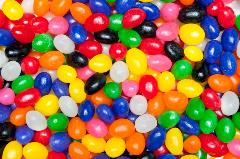Georgia Dental Association’s Best and Worst Candy List for 2018

As we head into another month with a holiday that’s typically celebrated with loads of candy, the Georgia Dental Association reminds all Georgians (young and old) that while you don’t need to totally avoid eating candy, you should choose it wisely. To help sort through what to put in the Easter basket (and what to eat out of it), the Georgia Dental Association offers a rundown on the three best and worst and common Easter candies and their impact on teeth.
“As dentists, we would like our patients to opt for healthy snacks, but it’s OK to eat that candy on Easter as a splurge as long as you’re brushing twice a day, flossing once a day all year long, and seeing your dentist regularly,” says Georgia Dental Association dentist, Dr. Janice Lee.
If you plan on indulging on candy this Easter, the Georgia Dental Association offers the following guide to the best and worst types of candies for your teeth.
The Best…
 Chocolate: Amazingly enough, chocolate is probably your best bet, which is good because chocolate eggs and bunnies are also one of the most popular kinds of candy this time of year. Chocolate is one of the better candies because it washes off your teeth easier than other types of candy. Dark chocolate also has less sugar than milk chocolate.
Chocolate: Amazingly enough, chocolate is probably your best bet, which is good because chocolate eggs and bunnies are also one of the most popular kinds of candy this time of year. Chocolate is one of the better candies because it washes off your teeth easier than other types of candy. Dark chocolate also has less sugar than milk chocolate.
- Sugar-free Candies and Gum: Here is one treat that is actually good for your teeth if the sugarless candies or gum are made with sugar substitutes or xylitol, which helps prevent cavities. Research shows that chewing sugar-fee gum after meals, or after chowing down on Easter candy, stimulates saliva production, which helps prevent cavities. Look for one with the ADA Seal of Acceptance. Go ahead and mix some of these treats into your Easter basket.
- Candies with Nuts: In addition to containing protein and fiber which are good for both your dental and overall health, nuts in candy help break up stickiness left over from candy, and they also work to break down the biofilm on teeth. Both the stickiness and biofilm can lead to tooth decay if left on your teeth. Candy bars made with dark chocolate and nuts are healthier than candy bars that are filled with creams, milk chocolate and a considerably higher amount of sugar.
The Worst…
 Sticky, Gummy & Gooey: Be picky if it’s sticky. These are some of the worst candies for your teeth. This candy is harder to remove and may stay longer on your teeth, which gives that cavity-causing bacteria more time to work. Sticky candy is particularly dangerous because it tends to get stuck in teeth’s tiny nooks and crannies. This makes it really hard to reach while brushing and flossing. The longer the goo sticks around, the longer the teeth are exposed to the sugar and the more likely it is that cavities will follow. Avoid caramels, gummies and taffy.
Sticky, Gummy & Gooey: Be picky if it’s sticky. These are some of the worst candies for your teeth. This candy is harder to remove and may stay longer on your teeth, which gives that cavity-causing bacteria more time to work. Sticky candy is particularly dangerous because it tends to get stuck in teeth’s tiny nooks and crannies. This makes it really hard to reach while brushing and flossing. The longer the goo sticks around, the longer the teeth are exposed to the sugar and the more likely it is that cavities will follow. Avoid caramels, gummies and taffy.
- Sour Candy: Not all damaging candy is super sweet. In fact, you might want to pass on things that make you pucker – especially if they are sticky and coated in sugar. Sour candy can be very acidic, and that acidity can weaken and damage the hard outer shell of your teeth, making your teeth more vulnerable to cavities.
- Hard as a Rock: Hard sweets like lollipops or small jawbreakers take a while to eat, leaving teeth exposed to sugar for a long time. You also tend to keep these kinds of candies in your mouth for longer periods of time so the sugar is getting in your saliva and washing over your teeth. The longer it’s there, the more chance there is for decay and cavities. Also, if it’s bit into too soon, the tough texture of the candy can even cause tooth damage such as chips and broken teeth.
Regular visits to your dentist can help prevent problems from occurring and catch those that do occur early, when they are easy to treat. To read more about how having a dental home positively affected real Georgians and to find a dentist near you, visit becauseisawmydentist.com.
About the Georgia Dental Association
The Georgia Dental Association (GDA) is the state’s largest dental association, representing more than 3,400 dentist members. The premier source of oral health information in Georgia, the GDA has promoted the highest standards of dentistry through education, advocacy and professionalism since 1859. A constituent of the American Dental Association, the GDA is based in Atlanta.